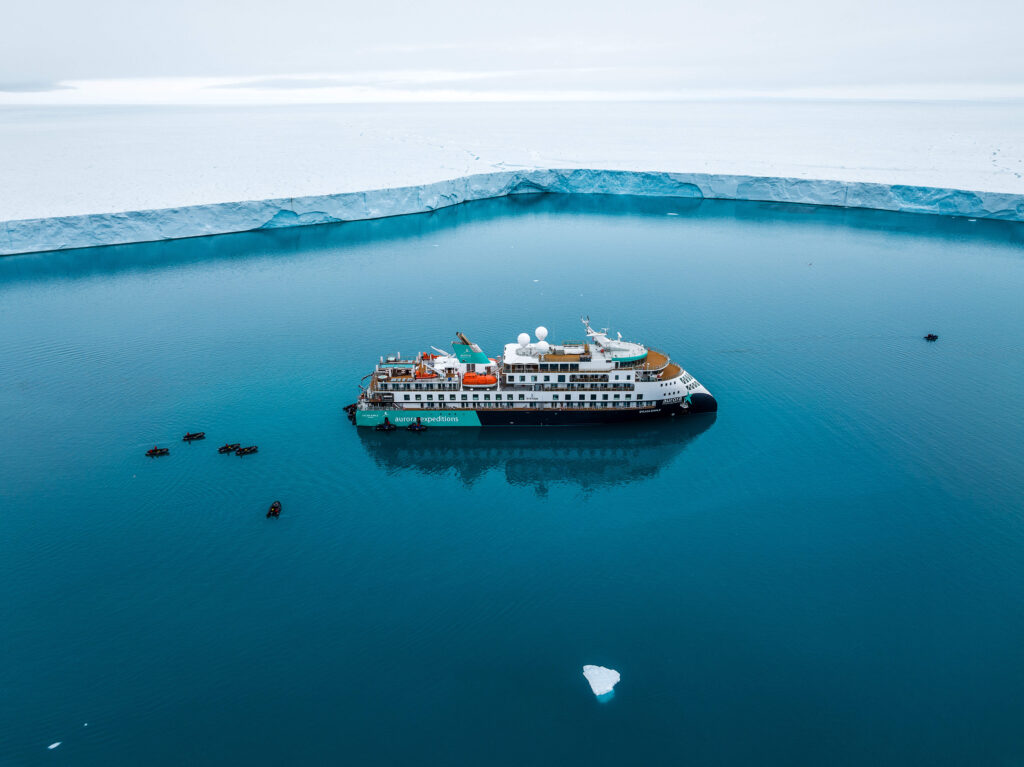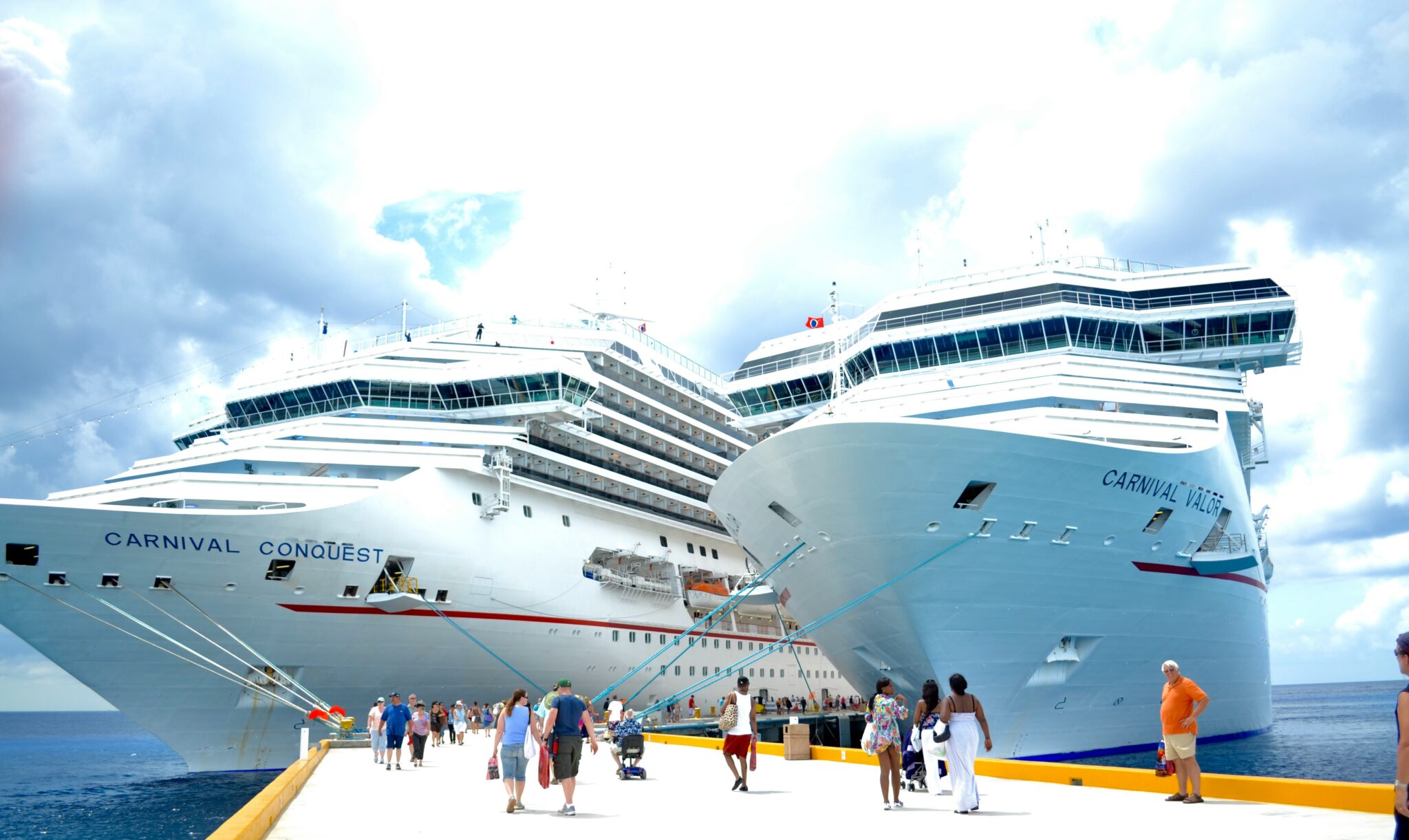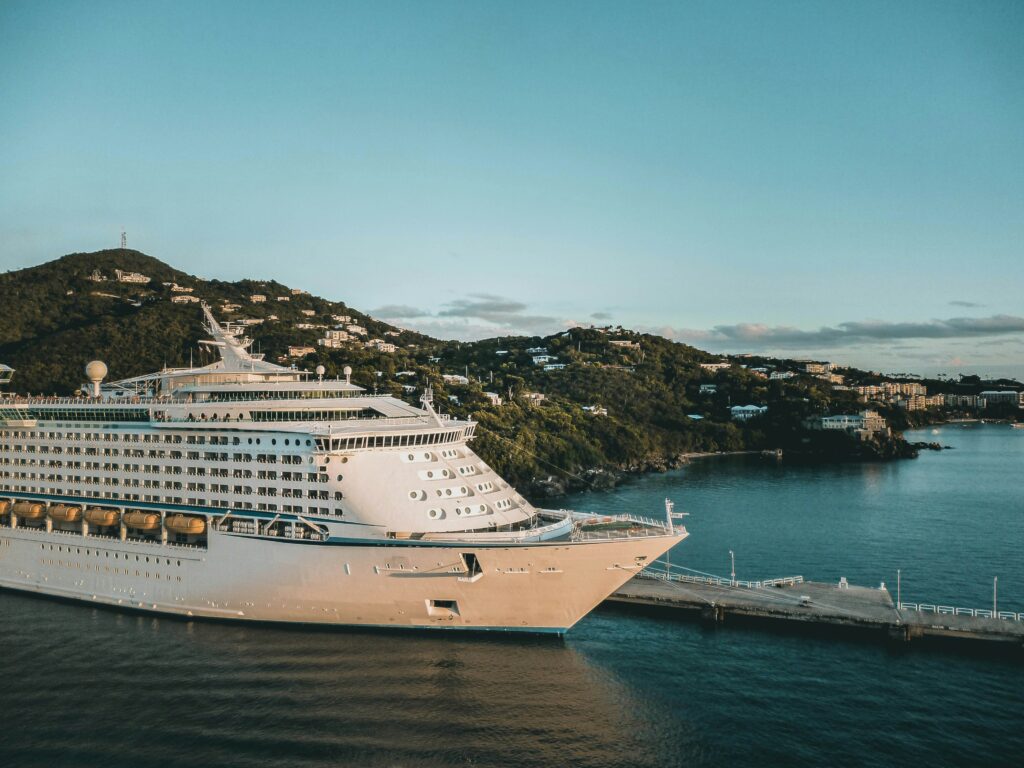A call to action for travel professionals on World Ocean Day 2025
As we mark World Ocean Day on June 8th, the spotlight once again falls on our planet’s most precious resource – our oceans. Oceans absorb about 30% of carbon dioxide produced by humans, buffering the impacts of global warming. Yet despite their critical role in our ecosystem, the cruise industry continues to grapple with significant sustainability challenges that demand immediate attention from travel businesses worldwide.
The Growing Cruise Market and Its Ocean Impact
The cruise industry is experiencing unprecedented growth. The global cruise industry welcomed 34.6 million cruise passengers in 2024, with 37.7 million expected in 2025. Global Cruise Market size was valued at USD 25.93 Billion in 2024 and the total Cruise Market revenue is expected to grow at a CAGR of 6.7 % from 2024 to 2032, reaching nearly USD 43.56 Billion.
However, this growth comes with a substantial environmental cost. Cruise ships also contribute to black carbon (BC) emissions, with the industry accounting for 6 per cent of BC emissions despite making up only 1 per cent of the global fleet. To put this in perspective, a person who takes a five-day cruise on a cruise ship, even the most efficient one, will be responsible for generating about 500 kg of CO2. This is about twice the total greenhouse gas emissions of an aeroplane flight.
The Uncomfortable Truth: Passengers Don’t Care Enough (But They Should)
At Traveltek, our recent sustainability survey revealed a troubling disconnect between the urgency of ocean conservation and consumer priorities. Our research found that 93% of travel agents reported price as the primary factor influencing cruise choices, with destination coming second at 85%. Sustainability ranked as merely a secondary consideration, important to only 35% of respondents.

Photo by Naja Bertolt Jensen on Unsplash
Perhaps most concerning, 46% of agents stated that sustainability discussions rarely occur with clients, while only 14% report these conversations happening regularly. This indifference persists despite mounting evidence of cruising’s environmental impact and the critical role our oceans play in global climate stability.
Why Travel Businesses Must Act Now
The Demographic Shift Is Coming
The cruise industry faces a critical challenge: attracting new demographics to sustain growth. The industry needs an additional 4 million new cruise travelers between 2023 and 2025, according to CLIA data. Millennials and Generation Z – dubbed the “sustainability generation” for their conscious spending habits – represent the future of cruise tourism. These demographics prioritise environmental responsibility, making sustainability not just an ethical imperative but a business necessity.
Economic Resilience Requires Environmental Responsibility
Despite negative environmental press, cruise bookings continue growing year-on-year through Traveltek’s platforms. However, this growth masks underlying vulnerability. Travel businesses that fail to address sustainability concerns risk losing market share to competitors who embrace environmental responsibility. With plans in place for carbon-neutral cruising by 2050, we can imagine that more people will ‘get on board’ with sustainable cruising options.
Industry Progress Is Accelerating
Cruise companies are pursuing more efficient ships, alternative fuels and digital technologies, as they navigate towards net-zero carbon cruising by 2050. While the COVID-19 pandemic brought the ocean passenger cruise industry to a standstill for nearly two years, it also prompted the accelerated retirement of numerous older ships. Simultaneously, new additions to fleets adopted a more modern and environmentally friendly approach.

Image courtesy of Aurora Expeditions, a leader in cruise sustainability.
Leading this charge are pioneering companies like Aurora Expeditions, our B-Certified partner, which demonstrates that expedition cruising and environmental responsibility can go hand in hand. B-Corporation certification requires companies to meet rigorous standards of social and environmental performance, accountability, and transparency – making Aurora Expeditions a prime example of how cruise operators can balance profitability with purpose. Their commitment extends beyond certification to practical initiatives including waste reduction, carbon offset programs, and educational partnerships that turn every voyage into an opportunity for ocean conservation advocacy.
The Business Case for Sustainable Cruise Promotion
Our survey revealed that travel agents rate promoting sustainable cruises as moderately challenging (5.7/10 difficulty). This difficulty stems from several factors: limited consumer interest, complex sustainability messaging, and insufficient training on green cruise options. However, this challenge presents an opportunity for forward-thinking travel businesses.
Only 15% of survey respondents extensively promote sustainability credentials, while 50% don’t actively promote them at all. This gap represents a competitive advantage for businesses willing to invest in sustainability education and promotion.
Actionable Steps for Travel Businesses
1. Education and Training
Invest in staff training on cruise sustainability initiatives. Understanding green technologies, sustainable itineraries, and environmental certifications enables agents to confidently address client concerns and promote responsible options.
2. Technology Integration
Implement green search filters and sustainability ratings in booking systems. Make environmental impact information readily accessible during the booking process, enabling informed decision-making without adding complexity.
3. Partnership Strategy
According to Positive Planet, only 2% of in-house sustainability plans succeed. Partner with accredited environmental organisations and cruise lines with verified sustainability credentials to ensure credible, effective action.
4. Communication Framework
Develop clear, compelling messaging that connects cruise experiences with ocean conservation. Frame sustainability as enhancing rather than limiting the cruise experience – emphasising pristine destinations, wildlife encounters, and responsible tourism.
5. Target Marketing
Focus sustainability messaging on younger demographics and environmentally conscious travelers. Create content that resonates with values-driven consumers while highlighting the luxury and adventure of sustainable cruising.
The Path Forward

Photo by Stephanie Klepacki on Unsplash
The forecast for cruise capacity shows an increase of 10% from 2024 through 2028, as cruise lines make ongoing, concrete progress in pursuit of net- zero emissions. This industry commitment provides travel businesses with legitimate sustainability stories to share with clients.
The challenge lies not in the absence of sustainable options but in effectively communicating their availability and importance. Travel businesses must bridge the gap between industry innovation and consumer awareness, transforming sustainability from a secondary consideration into a compelling selling point.
World Ocean Day Call to Action
This World Ocean Day, travel businesses have an opportunity to lead rather than follow. By prioritising ocean-conscious cruising, we can:
- Protect the marine environments that make cruise destinations spectacular
- Meet the expectations of environmentally conscious travelers
- Support cruise lines investing in sustainable technologies
- Build resilient businesses prepared for changing consumer demands
- Contribute meaningfully to global ocean conservation efforts
The question isn’t whether the cruise industry will become more sustainable – industry leaders are already committed to net-zero emissions by 2050. The question is whether travel businesses will position themselves as sustainability leaders or lag behind market evolution.
Our oceans need advocates, and travel professionals are uniquely positioned to influence millions of travelers’ choices. This World Ocean Day, let’s commit to making every cruise conversation include sustainability, every booking decision consider environmental impact, and every client interaction advance ocean conservation.
The tide is turning toward sustainable cruising. Travel businesses must decide whether to ride the wave or be swept away by it.
For more insights on cruise industry sustainability and how Traveltek supports responsible travel, follow along on LinkedIn or contact us to learn more.




